The importance of being earnest with veterinary team members
Help team members understand profits, threats and change.
Next >
When the Veterinary Hospital Managers Association (VHMA) wanted to know what team members working in veterinary practices really think, we asked. Findings from the VHMA's annual survey "Candid Confessions: A Survey on Profits, Threats and Change" show all members of the veterinary team are equally well-informed about the issues and challenges facing veterinary practices. The issues highlighted in the survey included use of practice profits, external threats to practice success, areas for improvement within the practice and the practice's ability to adapt to change. These issues are critical because they all affect employees' perceptions and ultimately their performance within the practice environment.
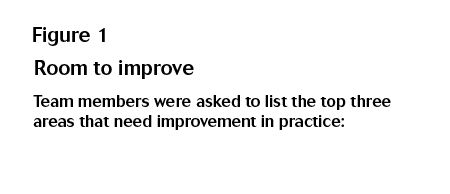
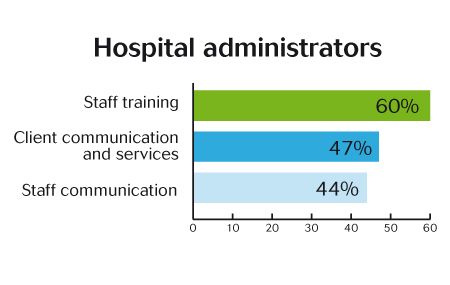
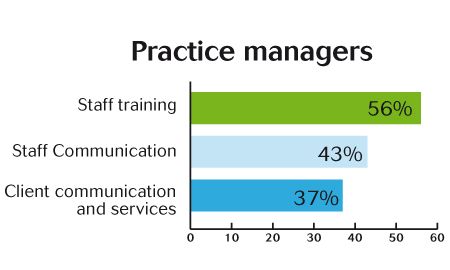
Pondering the profits
Across all staff positions, most respondents indicated they're aware that profits are reinvested in growing and improving the practice. More than 60 percent of veterinary assistants, practice managers and hospital administrators indicated they're aware that profits are reinvested in growing and improving the practice. However, a number of veterinary associates (12 percent) and technicians (10 percent) reported not having any idea what becomes of practice profits. Improving your team members' understanding about how your practice uses your profits can help boost the team's morale and motivation.

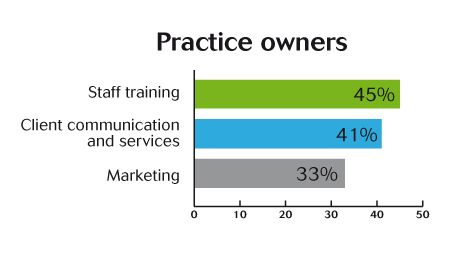
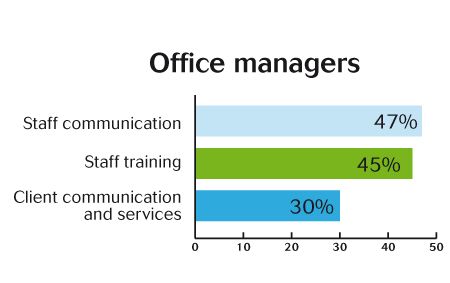
Examining external forces
The economy has presented all sorts of challenges over the past few years, and the veterinary industry has not been immune. Among all staff positions except hospital administrators, the challenging economy was the factor most often cited as working against a practice's success. Hospital administrators indicated the economy was a significant issue but targeted the broad-based lack of awareness about the importance of veterinary care as the most important issue, suggesting a need for proactive marketing efforts to educate clients and the public about the importance of veterinary care.

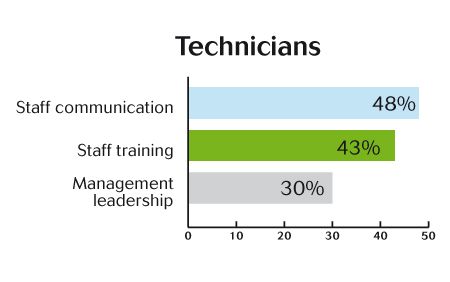
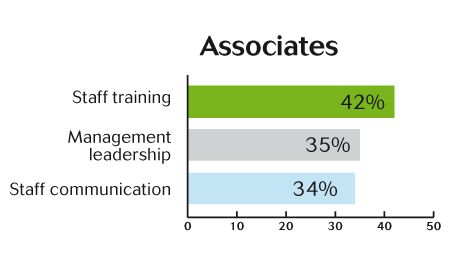
Promote the practice environment
When respondents were asked to list the three areas in their veterinary practice that needed improvement, the top three responses among all respondents were training (45 percent), communication (40 percent) and client communication and service (32 percent). While improved communication and training were the areas most often identified by respondents, improving areas such as technology, facilities and continuing education received less support. Data from the recent dvm360 Change Survey also highlighted areas of change and identified specific areas for improvement in veterinary practice (Read more here.)

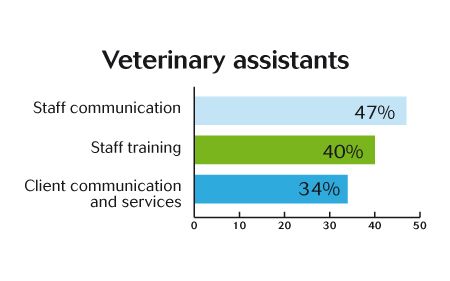
Change is hard
An organization's ability to adapt and change is key to its survival, and the veterinary practice setting is no exception. Respondents were asked to describe the culture of change at their practice, and responses were evenly distributed among the answers. When the results were examined by job title, veterinary associates (65 percent) and technicians (61 percent) seemed to be the most discouraged about the culture of change in their practices. The greater percentage of these respondents indicated that change was "started and not followed through" or "slow and difficult." Remember, ensuring that all staff members are informed and possess the right information to help grow the business is critical to any practice's success. So take time to talk about changes with your team.
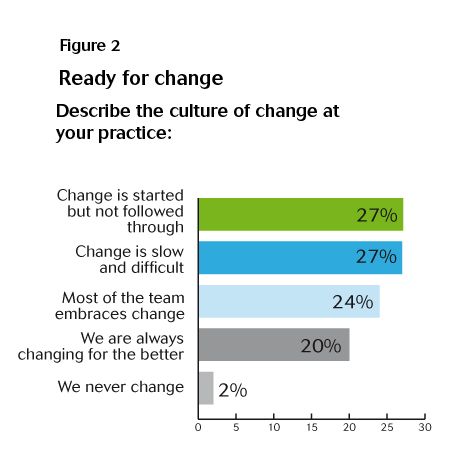
Study methodology
The Candid Confessions Survey asked questions about respondents' understanding of how their practice is managed and to isolate respondents' impressions of external events that impact practice performance. Respondents were also asked to identify the most significant threats to practice performance. The 2013 survey was distributed to participants at several national veterinary conferences. It was completed by 1,597 veterinary assistants, technicians, associates, office managers, hospital administrators, practice managers and practice owners.